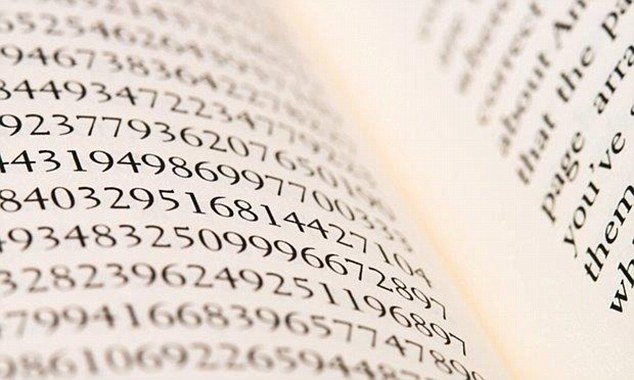-
Tips for becoming a good boxer - November 6, 2020
-
7 expert tips for making your hens night a memorable one - November 6, 2020
-
5 reasons to host your Christmas party on a cruise boat - November 6, 2020
-
What to do when you’re charged with a crime - November 6, 2020
-
Should you get one or multiple dogs? Here’s all you need to know - November 3, 2020
-
A Guide: How to Build Your Very Own Magic Mirror - February 14, 2019
-
Our Top Inspirational Baseball Stars - November 24, 2018
-
Five Tech Tools That Will Help You Turn Your Blog into a Business - November 24, 2018
-
How to Indulge on Vacation without Expanding Your Waist - November 9, 2018
-
5 Strategies for Businesses to Appeal to Today’s Increasingly Mobile-Crazed Customers - November 9, 2018
Largest ever prime number discovered has 22 million digits
It’s now the highest prime number ever discovered, eclipsing the previous record by 5 million. The new prime king has 22 million digits. Though they’re easy to define-numbers that are only divisible by themselves-they’re hard to find; there’s no reliable way to come up with new ones besides just counting up and testing every one to see if it’s prime or not.
Advertisement
Although prime numbers can have cryptographic uses, the vast size of M74207281 rules it out for that objective. However, current encryption is typically hundreds of digits long, not millions; Cooper’s discovery is now too large to be of use.
The number 2-1 was “discovered” by Curtis Cooper, a professor at the University of Missouri. The computer used to search for the prime numbers made the discovery on September 17, 2015.
So, what exactly is the number?
The discovered prime is written as 2^74,207,281-1, which denotes two, multiplied by itself 74,207,281 times, then take away one. The huge prime has 22,338,618 digits in all. It is both the longest continuously running distributed computing project as well as the one with most unfortunate acronym, Gimps. A bug kept the software from sending out an alert email, so the number went undiscovered by humans for months. Which is pretty amusing, considering the fact that the search for prime number is one of the ways people test computer power.
Professor Cooper described this as an “embarrassment” in an interview on the “Standup Maths” YouTube channel.
To prove there were no errors in the prime discovery process, the prime was independently verified by two computer programs and different hardware.
He has found four record-breaking prime numbers. So basic encryption works by locking information behind a gateway with a large public identifying number on it and asking anyone or any computers that want access to produce the prime factors of that number.
Advertisement
This new prime number is part of an even more rare group called Marsenne primes, of which there are only 49. GIMPS claims the 15 largest prime discoveries in the past 20 years, five of them tied to Dr. Cooper’s lab. The more primes at our disposal, the more protected we are from hackers.




























